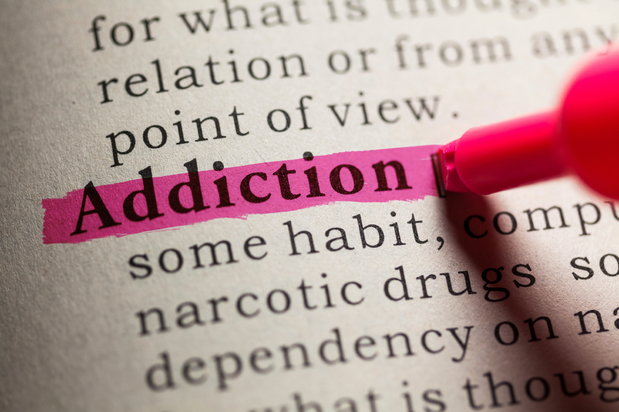The difference between a disease and a disorder is not always clear. In general, most health professionals agree that the definition of disease should be free of value judgments and social influences. It should also rest on the notions of intact biological functions in organisms and statistical departures of these functions from normalcy. This means that anything that is labeled as a disease should alter the organism’s normal range of functioning in a statistically and/or clinically significant manner.
What is Normal?
The notion of “normal functioning” is based on a range of different levels of function. Normalcy is never considered to be a singular concept or value. For example, a “normal” heart rate consists of a large range of values and specifiers rather than just some set point. An “abnormal” heart rate would be one that significantly departs from the range of normalcy. Unfortunately, even these statistical foundations of normalcy are often based on social values (as is certainly the case in addictions) and departures from normalcy can either be dysfunctional (e.g., someone who has a very low level of intelligence) or relatively benign (e.g., someone who has high intelligence). It is often a social judgment that decides which of these types of departures from normalcy qualify as diseases or disorders, especially when considering mental health issues.
Many contemporary definitions still describe a disease as consisting of some form of cellular abnormality or derangement. The famous psychiatrist and critic of psychiatry Dr. Thomas Szasz[1] suggested that, based on medical definitions, in order to qualify as a disease any deviation in cellular arrangement should consist of three external factors:
1. The deviation falls outside the normal range for the organism’s class
2. The organism is not capable of fixing itself without the disruption of some other related cellular network
3. The disruption reduces the organism’s ability to cope with environmental pressures.
Based on these ideas Szasz argued that most psychiatric issues, even addictions, do not qualify as medical diseases. The disease tag is appropriate for psychiatric conditions if one is using it as a metaphor, like in the term “a diseased economy.” However, as in this metaphor the term does not imply a real medical disease. His attitude toward mental illness resulted in Dr. Szasz being ostracized from mainstream psychiatry.
Argument #1: Addiction is a Disease
However, there are also several evidences that support addiction as a disease. The first and most often used argument is that addictions have a biological basis that includes both the genetic influences that predispose one to addictive behavior (you have genes from birth that make you susceptible to addiction) as well as structural changes in the brain that lead to a loss of volition in affected individuals (the addictive behavior changes your brain so you lose control over your addictive behavior)[2].
Studies of monozygotic (identical) twins, dyzygotic (fraternal) twins, siblings and offspring studies in humans have supported the notion of a strong genetic component to addiction. Heritability is the proportion of differences in a trait that are believed to be due to genetic influences. Identical twins that have been adopted away from their biological families are considered to provide strong evidence for a genetic component to a behavior because their shared environment has been removed and identical twins share 100% of their genetic makeup. These twin studies indicate that the heritability for alcoholism ranges from 52%-63% (some studies report higher and lower heritability rates, but this range is most consistent with overall findings)[2, 3]. Other addictions have similar heritability rates.
Another crucial feature to the addiction as disease model is the biological changes produced in the brain that are associated with drugs or addictive activities. These effects lead to continued use or a loss of control so significant that the user is compelled to use drugs (or engage in addictive activity) even if he or she does not want to[4, 5, 6].
Other researchers draw associations of addictive behaviors and the success of medical treatments as evidence for the disease model of addiction. Thus, addictions are now viewed by many medical professionals as real diseases like cancer or heart disease. One only need to look into any treatment manual or medical journal article on addiction to find references that allude to addiction as a real physical disease or brain disease.
Argument #2: Addiction is Not a Disease
On the opposing end, some critics point out that the concept of heritability is flawed. It is not a measure of inheritance but instead a measure in differences that may be due to genetic factors[7]. For example, the heritability for the number of fingers we have on our hands is near zero because most differences in fingers between people are due to an environmental event (e.g., people with less than 10 fingers on their hands usually have suffered an accident). Moreover, a heritability coefficient of 0.50 (or 50% of the observed differences in the trait being due to genetic factors) indicates equally strong genetic and environmental contributions to a trait. In this case, high heritability rates or a strong genetic association does not necessarily qualify something as a disease.
The idea that a disease is genetic in origin cannot be made until it can be proven that these genetic factors alone are not only necessary but sufficient explanations to account for the disease[7]. In fact, similar heritability rates occur for all kinds of non-disease behaviors such as political conservatism and skills like piano playing[8, 9]. In identical twin studies where the subjects are 100% genetically similar, if one twin is an addict there is only a 50% chance that the other will be as well[2].
The “loss of control” idea also originates from animal models of addiction that are not really generalizable to humans and from neuroimaging studies of addicts used to explain why they continue their use drug of choice when their behavior is self-destructive. However, there are numerous studies to indicate that the loss of control in addiction may be a fallacy. For instance, in a famous study commissioned by the United States Department of Defense of nearly 500 Vietnam veterans who had tested positive for opiates (heroin) when they returned home, only about 1% of all the soldiers used heroin prior to going to Vietnam. Once stationed there, the number increased to nearly 20%[10, 11].
Heroin is considered one of the most highly physically addicting drugs. However, only about 14% of the 500 heroin addicted soldiers in the study continued to use heroin upon returning home. The major reason all 500 of the addicted soldiers gave for their addiction was that it helped cope with the stress of war. Once the majority of these soldiers were away from the war they stopped using heroin. Studies of heroin relapse rates occurring about the same time as this study indicated a 90% relapse rate for heroin addicts living in U.S.[11]. Thus, we would predict that nearly 450 of the returning veterans would have continued to use after returning home if heroin addiction is a brain disease, but only 14% did (similar findings demonstrating voluntary abstinence for alcoholics, cocaine addicts, etc. also exist).
Finally, an argument exists that because medical treatments improve recovery rates in addiction, it does not make it a valid disease. Just because aspirin reduces tension headache symptoms or muscle pain and fatigue due to overexertion it does not necessarily make tension headaches, fatigue and muscle soreness diseases. It is also not logical to assume the opposite: that just because non-medical treatments improve the rate of recovery for something it must not a disease. Would the medical profession declassify cancer as a disease because rest, relaxation, proper nutrition, changing habits and other non-medical interventions improve recovery rates? Thus, this type of reasoning cannot be used to qualify addiction as a brain disease.
If you or someone you know is seeking help for behavioral, alcohol or drug addiction, please visit our directory of treatment centers or call 866-606-0182 to start the path to recovery today.
References:
[1] Szasz, T. (2008). Psychiatry: The science of lies. New York: Syracuse University Press.
[2] World Health Organization. (2004). Neuroscience of psychoactive substance use and dependence. New York: Author.
[3] American Psychiatric Association (APA). (2013). Diagnostic and Statistical Manual of Mental Disorders-Fifth Edition. Washington, DC: American Psychiatric Association.
[4] National Institute of Drug Abuse (2009). Multiple retrievals from www.drugbuse.com.
[5] Volkow, N.D., Fowler, J.S., & Wang, C.J. (2003). The addicted human brain: insights from imaging studies. Journal of Clinical Investigation, 111,1444–1451.
[6] Volkow, N.D, Fowler, J.S., & Wang, G.J. (2004). The addicted human brain viewed under the light of imaging studies: Brain studies and treatment strategies. Neuropharmacology, 47(Supp. 1), 3-13.
[7] Rutter, M. (2006). Genes and Behavior: Nature-Nurture Interplay Explained. Boston: Blackwell.
[8] Bouchard, T.L., Segal, N.L., Tellegen, A, McGue, A., Keyes, M., and Krueger, R. (2003). Evidence for the construct validity and heritability of the Wilson–Patterson conservatism scale: a reared-apart twins study of social attitudes. Personality and Individual Differences, 34(6) 959-969.
[9] Pascual-Leone, A. (2001). The brain that plays music is changed by it. Annual of the New York Academy of Science, 930, 315-29.
[10] Robbins, L.N., Helzer, J.E., & Davis, D. H. (1975). Narcotic use in Southeast Asia: An interview study of 898 Vietnam veterans. Archives of General Psychiatry, 32, 955-961.
[11] Robbins, L.N., Helzer, D.E., Hesselbrock, M., & Wish, E. (1980). Vietnam Veterans three years after Vietnam: how our study changes our view of heroin. Yearbook of Substance Use and Abuse (2). New York: Plenum.








